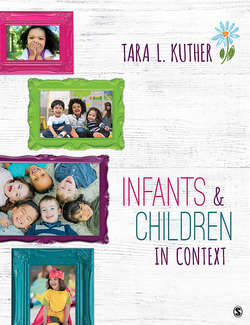Читать книгу Infants and Children in Context - Tara L. Kuther - Страница 50
На сайте Литреса книга снята с продажи.
Operant Conditioning
ОглавлениеPerhaps it is human nature to notice that the consequences of our behavior influence our future behavior. A teenager who arrives home after curfew and is greeted with a severe scolding may be less likely to return home late in the future. A child who is praised for setting the dinner table may be more likely to spontaneously set the table in the future. These two examples illustrate the basic tenet of B. F. Skinner’s (1904–1990) theory of operant conditioning, which holds that behavior becomes more or less probable depending on its consequences. According to Skinner, a behavior followed by a rewarding or pleasant outcome, called reinforcement, will be more likely to recur, but one followed by an aversive or unpleasant outcome, called punishment, will be less likely to recur.
Operant conditioning explains much about human behavior, including how we learn skills and habits. Behaviorist ideas about operant conditioning are woven into the fabric of North American culture and are often applied to understand parenting and parent–child interactions (Troutman, 2015). Developmental scientists, however, tend to disagree with operant conditioning’s emphasis on external events (reinforcing and punishing consequences) over internal events (thoughts and emotions) as influences on behavior (Crain, 2016). That is, controlling a child’s environment can influence his or her development, but recall that children are active in their own development. Change can occur through a child’s own thoughts and actions. A child can devise new ideas and learn independently, without experiencing reinforcement or punishment.
